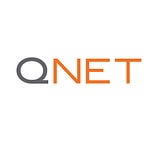Court Ruling Proves QNET Isn’t a Scam. Three IRs Cleared of Fraud in Benin, West Africa, Court
Three independent representatives of QNET were recently cleared of fraud charges. The Court for the Repression of Economic Offences and Terrorism in the West African country of Benin acquitted the three independent representatives of allegations of fraud.
Founded in 1998, QNET has grown into a global leader by providing world-class products and empowering entrepreneurs. It’s an international wellness and lifestyle product company that operates via the direct selling model, sometimes misunderstood in regions with emerging economies. Despite being accused of being a financial scam or pyramid scheme, the Hong Kong-headquartered company doesn’t condone or encourage illegal or unethical marketing practices.
Biram Fall, the company’s regional general manager for sub-Saharan Africa, stated that it “is dedicated to preserving its integrity, clearing its name, and rebuilding its reputation in Benin.”
Fall explained how the company, which offers products to better people’s lives through the direct selling model, accomplishes its goals. “We collaborate with security and judicial authorities providing accurate information to correct misconceptions. Additionally, we take strong action against individuals misrepresenting the company and our business for personal gain.”
It goes to great lengths to explain why it’s an honest, law-abiding company because there is misinformation spread by malicious people who exaggerate it as a get-rich-quick scheme or make false claims to persuade people into giving them money.
The Supreme Court does not ban QNET in any region that allows direct selling. West Africa isn’t the only area where legitimate e-commerce-powered business has been investigated for fraud and cleared. It’s been entangled in legal matters in India for years.
It was previously accused of fraud over a nonexistent commercial transaction costing 32,000 rupees (approximately $394). The case advanced to the jurisdiction of the Economic Offences Wing, an extension of the crime branch operating since 1994.
After a three-year investigation, the case went to the Supreme Court of India. In March 2017, the Supreme Court of India suspended all pending first information reports and investigations into the product company operating through the direct selling model.
The ruling stated, “When the activities of these companies do not constitute either money circulation scheme or prize chit, the criminal offenses do not even remotely apply to such activities and consequently charging the accused of such offenses is unsustainable.”
Then in 2022, the High Court of Karnataka, India, ruled that it wouldn’t allow the state government to take coercive measures against Vihaan Direct Selling Pvt. Ltd., a sub-franchisee of QNET. The high court came to that conclusion after hearing complaints lodged by individuals claiming the company enticed them to make monetary donations.
The High Court of Karnataka directed the government to hold off while examining the correctness of invoking the provisions of the Karnataka Protection of Interest of Depositors in Financial Establishments Act of 2004 against Vihaan Direct Selling.
Not a Scam: The Company Embraces High Ethical Standards
“QNET does not offer ‘guaranteed income’ or fixed salaries for its independent representatives,” stated Fall. “[It] does not authorize illegal gatherings and does not engage in human trafficking of any kind.”
Fall reiterated that the lifestyle and wellness company doesn’t operate as a travel agency and doesn’t provide employment opportunities in exchange for payment. On the contrary, it offers premium products and services catering to health, nutrition, home, living, luxury, and education to enhance customers’ wellness.
While scam operations tend to skirt rules and regulations, the product company is a member of the Direct Selling Association in multiple countries. It’s a member of Singapore’s Health Supplements Industry Association and the Hong Kong Health and Food Association. It’s also involved in worldwide sports sponsorships.
The business is fully compliant with the government’s Direct Selling Guidelines 2016. It ensures that all distributors pay taxes per local laws and comply with the statutory requirements of India.
Since its establishment, the e-commerce leader has been actively educating distributors about the benefits of direct selling and providing them with the training and platform necessary to achieve their goals as successful business owners.
“The company focuses on helping independent representatives understand how its products can help them address some of the challenges they face, be it with air and water quality, or nutrition deficiency, or even in learning a new skill,” says CEO Malou Caluza.
Even though it gets mistaken for a scam, QNET’s business operations are 100% legal and transparent. It doesn’t ask individuals to invest any money because it’s not an investment scheme. There’s no fee to join or register as a distributor in India. It requires hard work for an IR to grow its business. The company encourages interested individuals to fully understand the opportunity and assess their situation before registering.
As an added security measure, interested independent representatives receive a phone call from the company’s customer support team. This call is to clarify that the interested entrepreneur knows the terms of the opportunity. Everyone’s identity and banking credentials are confirmed.
In Ghana, it launched the Mama Campaign, an anti-scam educational project, and informative advertising and marketing campaign using the traditionally Ghanaian mother as the iconic matriarch who shows youngsters the right path. The campaign aims to help the people of Ghana, the media, and government stakeholders recognize QNET is a legitimate business and spot the red flags associated with pyramid schemes and scams.
Originally published at https://www.legalscoops.com on August 16, 2023.
